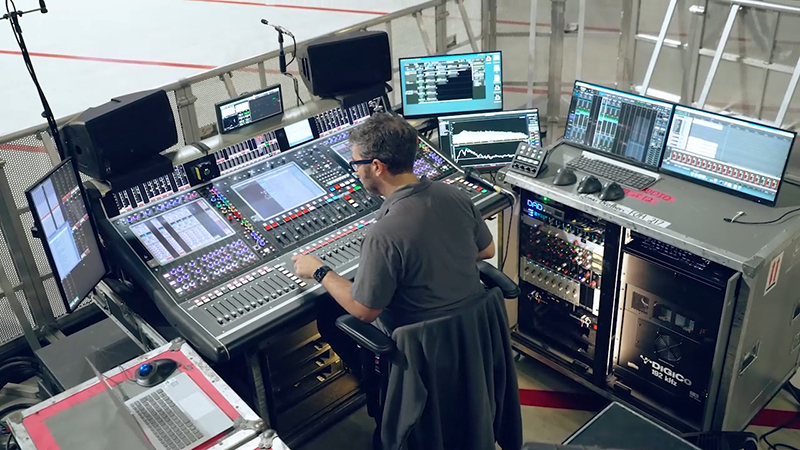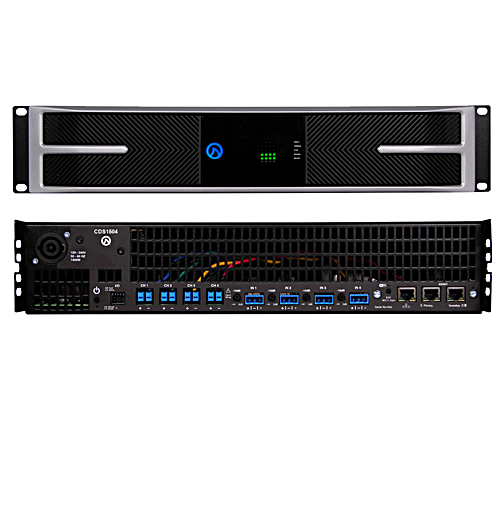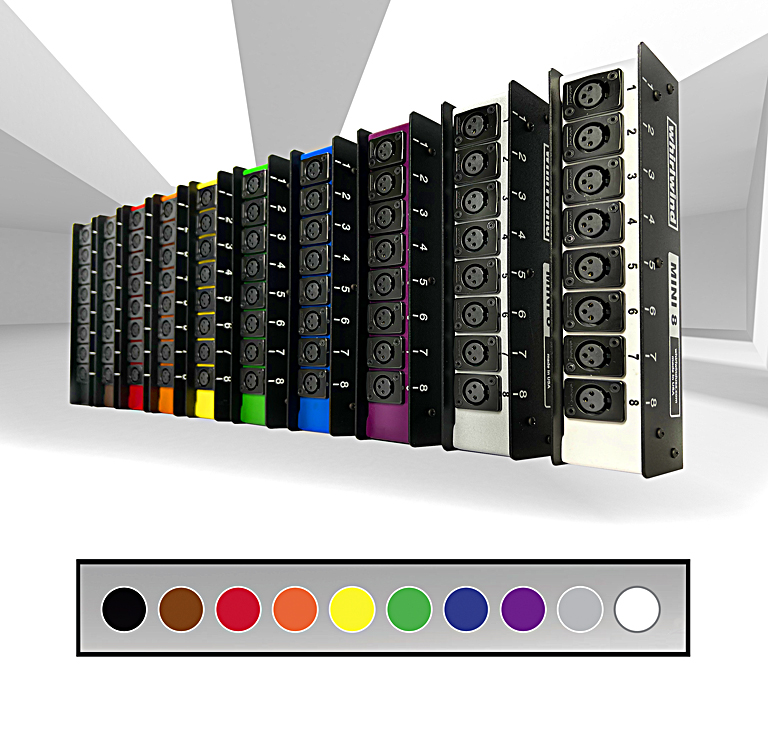
When DiGiCo’s Quantum338 launched at NAMM 2020, the crowd that was there to witness the console’s unveiling was unprecedented, with hundreds of curious onlookers gathered around the company’s booth. Since then, that product has gone on to be a massive global success, both out on tours and in myriad fixed installs. But with console-footprint “real estate” frequently being in short supply, DiGiCo has fielded many customer requests for a more compact, two-screen model, setting the stage for the new Quantum326 launching at London’s PLASA Show.
“A considerable number of audio professionals have asked us for a smaller version of the Quantum338—and specifically one with zero compromises to its feature set—so we’ve had our R&D team give the people what they want,” says DiGiCo Managing Director Austin Freshwater. “Aside from sporting one less screen and a dozen fewer faders, the Quantum326 is every bit the same remarkably powerful, versatile, and robust desk as its larger sibling, perfectly extending our full Quantum experience to a host of smaller performance spaces and touring productions with tighter logistics constraints.”
Just like the Quantum338, the Quantum326 represents a dramatic leap forward in power and connectivity. Based on the latest seventh-generation FPGAs, DiGiCo’s newest mixing console offers 128 input channels with 64 buses and a 24×24 matrix, all with full channel processing. Twenty-six 100mm touch-sensitive faders are laid out in two blocks of 12 fader banks, plus two dedicated user-assignable faders, each complete with high resolution metering. The desk also features a pair of 17-inch, 1000-nit high-brightness multi-touch screens, plus 58 individual TFT channel displays. Other amenities include “Ultimate Stadius” 32-bit ADC and DAC conversion, six single MADI connections, dual DMI slots, and much more.

The Quantum326 may also be upgraded with DiGiCo’s optional Pulse software update, increasing the console’s number of standard input channels to 156 (from 128), busses to 72 (from 64), Mustard Processors to 48 (from 36), and Nodal Processors to 72 (from 64). Another perk of the recent Pulse upgrade is the addition of Mix Minus functionality.
For theater applications, a Quantum326T version, equipped with the manufacturer’s theatre-specific software package, will additionally be available. This model comes with the Pulse upgrade already installed as standard, further supplying the user with a generous 36×36 Matrix.
Debuting on PLASA stand G11, the new Quantum326 and Quantum326T will begin shipping on October 24 of this year. For more information on the consoles, visit www.DiGiCo.biz.



